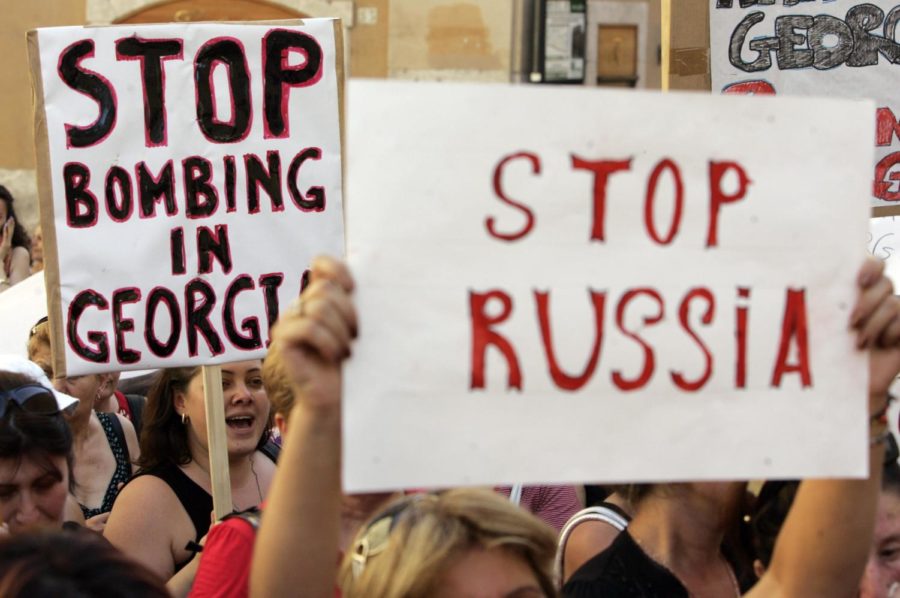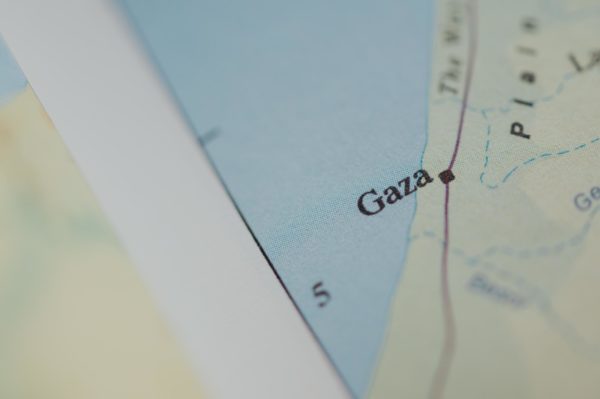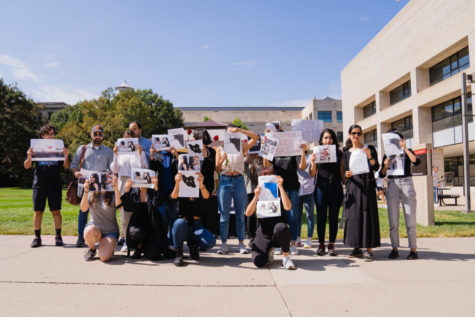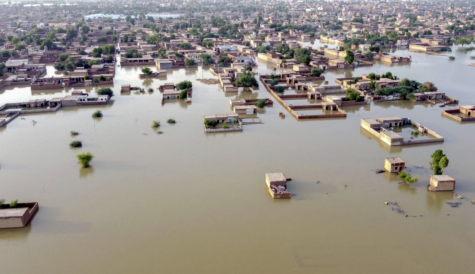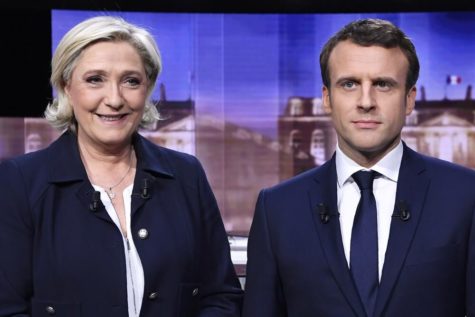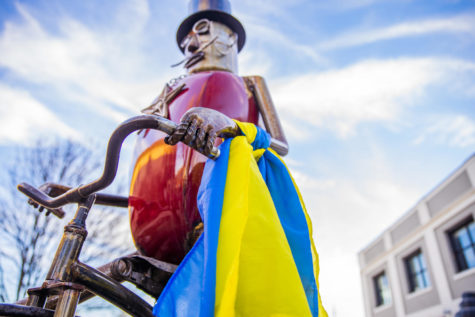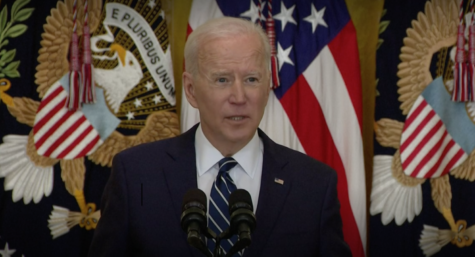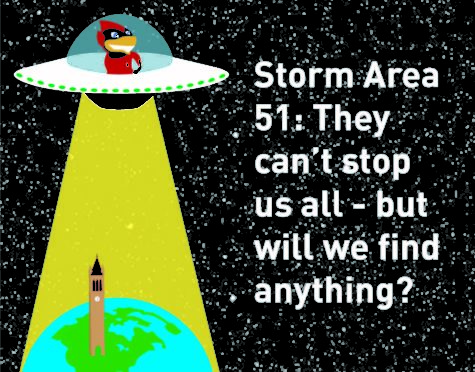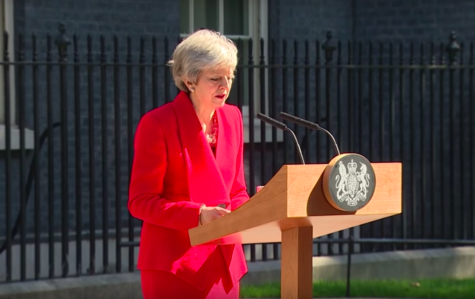Big powers urge Russia to accept truce
Demonstrators show placards during a pro-Georgia demonstration in downtown Rome, Sunday, Aug. 10, 2008. Italy said it would evacuate most of its citizens from Georgia on Sunday and called for an immediate cease-fire in the fighting over the breakaway province of South Ossetia. (PHOTO BY THE ASSOCIATED PRESS)
August 11, 2008
WASHINGTON — The world’s seven largest economic powers on Monday urged Russia to accept an immediate cease-fire with Georgia and agree to international mediation over the growing crisis in Georgia’s separatist areas that is verging on all-out war.
Secretary of State Condoleezza Rice and her colleagues from the Group of Seven leading industrialized nations spoke by telephone and pledged their support for a negotiated solution to the conflict that has been raging since Friday between the former Soviet state and Russia, deputy State Department spokesman Robert Wood told reporters.
Rice and the foreign ministers of Britain, Canada, France, Germany, Italy and Japan called on Russia to respect Georgia’s borders and expressed deep concern for civilian casualties that have occurred, he said, adding that the call was one of more than 50 Rice made over the weekend on the matter.
“We want to see the Russians stand down,” Wood said.
He noted that Georgia had agreed to a cease-fire and said the ministers wanted to see Russia sign on immediately as urgent consultations at the United Nations and NATO were expected.
Wood said the United States was hopeful that the U.N. Security Council would pass a “strong” resolution on the fighting that called for an end to attacks on both sides as well as mediation but prospects for such a statement were dim given that Russia wields a veto on the 15-member body.
In the call, the seven ministers backed a nascent mediation efforts led by French Foreign Minister Bernard Kouchner, whose country currently holds the rotating presidency of the European Union, and Finnish Foreign Minister Alexander Stubb, whose country now holds the chair of the Organization for Security and Cooperation in Europe, he said.
A U.S. senior U.S. diplomat, Matthew Bryza, is now en route to Europe and “the region,” Wood said, declining to provide details of the envoy’s itinerary. The State Department said over the weekend that families of diplomats in Georgia could leave but that diplomats would remain.
The Group of Seven, or G7, is often expanded into what is known as the G8, a grouping that includes Russia, but Russia’s Foreign Minister Sergei Lavrov was notably not included in the call.
The call came as swarms of Russian jets launched new raids on Georgian territory outside the initial conflict point of South Ossetia and Georgia faced the threat of a second front of fighting as Russia demanded that it disarm troops near the breakaway province of Abkhazia.
Meanwhile, the Pentagon was flying Georgian troops back home on C-17 aircraft. It had informed the Russians about the flights before they began in order to avoid any mishaps, but Russian Prime Minister Vladimir Putin harshly criticized the step, saying it would hamper efforts to resolve the situation by reinforcing Georgian assets in a “conflict zone.”
Defense Department spokesman Bryan Whitman said U.S. officials expect to have all Georgian troops out of Iraq by the end of the day but declined to respond to Russian protests over the flights, saying the U.S. took the Georgians home as part of a prior agreement that transport would be provided in case of an emergency.
He noted that the U.S. flew the Georgians into Iraq for their mission there and has flown troops from other nations into and out of Iraq on a number of occasions when the nation needed help with transportation. Asked if their departure leaves a hole in coalition capabilities, Whitman said “commanders … are making the necessary adjustments.”
Whitman said Defense Secretary Robert Gates had spoken in the last few days to both his Georgian and Russian counterparts, but he declined to say what they discussed. He said Gates also spoke twice to Georgia’s president — both times about U.S. help in getting the Georgian troops back to their country.
The United States is widening its rhetorical campaign to get Russia to halt its retaliation against Georgia for trying to take control of the breakaway province of South Ossetia. The conflict began there on Thursday when Georgia tried to regain control of the breakaway region. The United States recognizes it as part of Georgia but it has been under de facto Russian control for years.
In an interview with NBC Sports, Bush criticized the violence, calling it unacceptable and Russia’s response disproportionate.
“I’ve expressed my grave concern about the disproportionate response of Russia and that we strongly condemn the bombing outside of South Ossetia,” Bush said in Beijing, where he is attending the Olympic Games.
Bush said he made the point directly to Prime Minister Vladimir Putin before the opening ceremonies Friday — Putin left China the next day — and by phone to Russian President Dmitri Medvedev.
Vice President Dick Cheney told Georgia’s pro-American president that “Russian aggression must not go unanswered, and that its continuation would have serious consequences for its relations with the United States,” Cheney’s office reported Sunday.

